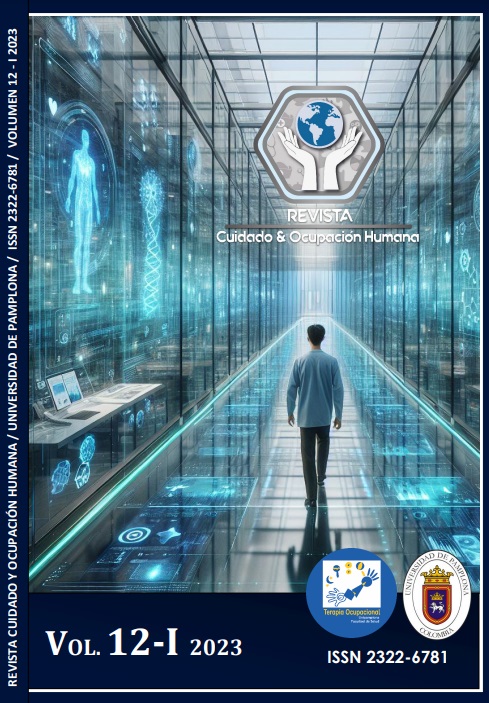Ultraprocesados y su efecto en la salud de los conductores de la terminal de transporte de Pamplona, Norte de Santander: Revisión Sistemática
DOI:
https://doi.org/10.24054/coh.v12i1.3087Palabras clave:
alimentos procesados, alimentos ultraprocesados, frecuencia de consumo, factor de riesgo, enfermedades crónicas no transmisiblesResumen
La presente investigación tiene como objetivo, realizar una revisión sistemática de los alimentos ultraprocesados y su relación con el desarrollo de enfermedades crónicas no transmisibles, tomando como base la población objeto de estudio los conductores de la terminal de transporte del municipio de pamplona norte de Santander, mediante la aplicación del instrumento cuestionarios de frecuencia de consumo con los cuales se investigan la relación entre ingesta dietética y enfermedad o factores de riesgo de la presente población, Los tres componentes principales de estos cuestionarios son la lista de alimentos, la frecuencia de consumo y el tamaño de la ración consumida. La lista de alimentos debe reflejar los hábitos de consumo de la población de estudio en el momento en que se recogen los datos. La frecuencia de consumo puede preguntarse de forma abierta u ofreciendo categorías de frecuencia para identificar cada alimento que consume la población, la aplicación de los cuestionarios requiere la interpretación de los participantes para poder tener información concreta clara y concisa sobre la alimentación y así proporcionar información descriptiva cualitativa sobre patrones de consumo alimentario de los conductores.
La importancia de dicha investigación radica básicamente en que se ha establecido que existe un vínculo estrecho entre los cambios en la dieta de alimentos reales o mínimamente procesados a alimentos ultraprocesados y las tasas de sobrepeso y obesidad y otras enfermedades no transmisibles (ENT) relacionadas a la dieta.
Descargas
Referencias
DavidRojas-Rueda. (2016). Impuesto a las bebidas azucaradas en España y su posible impacto en la salud. Nutricion Hospitalaria, file:///C:/Users/Acer/Downloads/art4%20(1).html.
Freidin, B. (2016). Alimentación y riesgos para la salud: visiones sobre . CONICET, file:///C:/Users/Acer/Downloads/Dialnet-AlimentacionYRiesgosParaLaSalud-6563643.pdf.
LauraMoreno-Galarraga. (2020). Consumo de productos ultraprocesados y enfermedades respiratorias sibilantes. Proyecto SENDO. Sociedad Española de Neumología, file:///C:/Users/Acer/Desktop/articulo%20obed.html.
NOVA. (2021). Alimentos ultraprocesados: impacto sobre las enfermedades crónicas no transmisibles. Nutricion Hospitalaria, file:///C:/Users/Acer/Downloads/articulo%204%20sem.pdf.
Ramírez-Vélez, R. (2015). El consumo regular de bebidas azucaradas incrementa el perfil lipídico-metabólico y los niveles de adiposidad en universitarios de Colombia. Revista Colombiana de Cardiologia, file:///C:/Users/Acer/Downloads/art.%20uno.pdf.
Tunjo, D. I. (2020). La alimentación sostenible en consumidores habituales del modelo alternativo de distribución de alimentos en Colombia. Universidad Nacional de Colombia, file:///C:/Users/Acer/Downloads/1073517041.2020%20(1).pdf.
Villagrán, M. (2020). Alimentos ultraprocesados y su rol en la prevención de la obesidad. Revista Chilena Nutricional, file:///C:/Users/Acer/Downloads/articulo%205%20sem.pdf.
Descargas
Publicado
Número
Sección
Licencia
Derechos de autor 2023 Cuidado y Ocupación Humana

Esta obra está bajo una licencia internacional Creative Commons Atribución-NoComercial-CompartirIgual 4.0.





